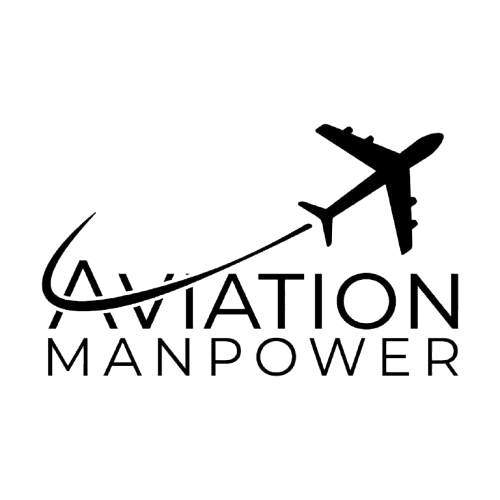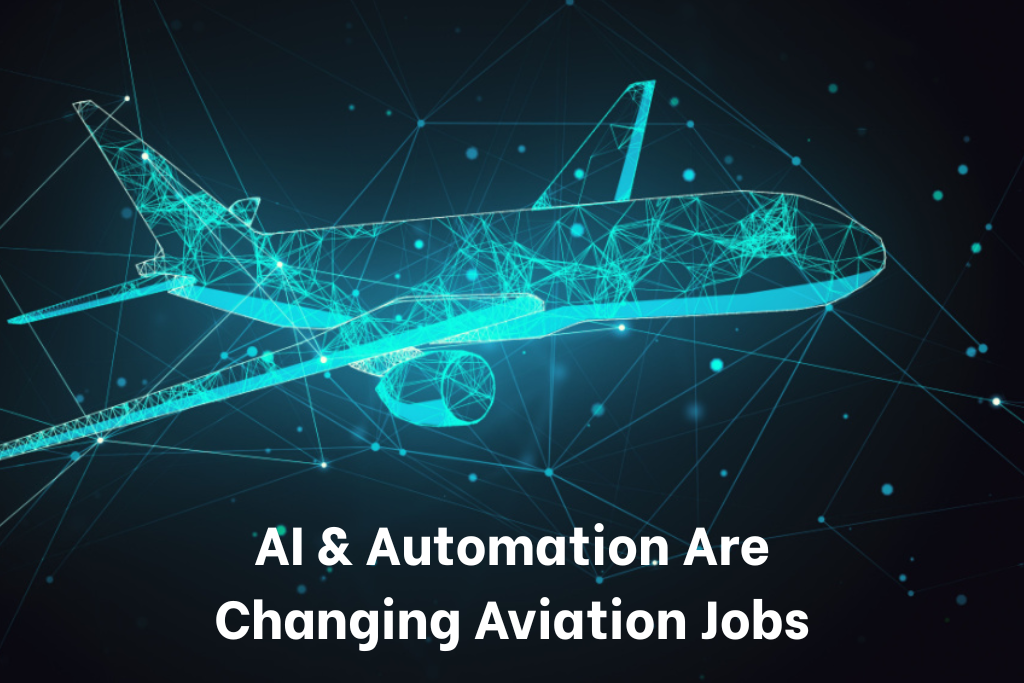Introduction
The aviation industry has always been at the forefront of innovation, from the invention of the jet engine to the development of supersonic travel.
Today, another technological revolution is reshaping the sector: Artificial Intelligence (AI) and automation. These advancements are transforming how airlines, airports, and aviation companies operate, creating new opportunities while also raising questions about the future of jobs in the industry.
From AI-powered flight systems to automated baggage handling, technology is making aviation safer, more efficient, and more sustainable. But what does this mean for the people who work in aviation? Are robots taking over, or are they creating new roles and opportunities?
In this blog, we’ll explore how AI and automation are changing aviation jobs, what this means for professionals in the field, and how you can adapt to thrive in this evolving landscape.
The Role of AI and Automation in Aviation
AI and automation are being integrated into nearly every aspect of aviation, from the cockpit to the control tower to the maintenance hangar. Here are some key areas where these technologies are making an impact:
- Flight Operations
AI is enhancing flight safety and efficiency by analyzing vast amounts of data in real-time. For example, AI-powered systems can predict weather patterns, optimize flight paths, and even assist pilots during emergencies. Automated systems like autopilot have been used for decades, but advancements in AI are taking these capabilities to the next level. - Air Traffic Management
Air traffic controllers are using AI to manage the growing complexity of air traffic. Automated systems can predict congestion, suggest optimal routes, and even communicate directly with pilots. This reduces the workload on controllers and improves safety. - Aircraft Maintenance
AI is revolutionizing aircraft maintenance through predictive analytics. Sensors embedded in aircraft collect data on engine performance, wear and tear, and other critical systems. AI algorithms analyze this data to predict when maintenance is needed, reducing downtime and preventing costly repairs. - Customer Service
Chatbots and virtual assistants powered by AI are transforming customer service in aviation. These tools can handle everything from booking tickets to answering frequently asked questions, freeing up human agents to focus on more complex issues. - Baggage Handling and Ground Operations
Automation is streamlining ground operations, from baggage handling to refueling. Automated systems can sort and load luggage more efficiently, while drones and robots are being used for tasks like aircraft inspections and runway maintenance.
How AI and Automation Are Changing Aviation Jobs
While AI and automation are creating new opportunities, they are also reshaping traditional roles. Here’s how some of the most common aviation jobs are being impacted:
1. Pilots
- Impact: AI is augmenting the role of pilots, not replacing them. Automated systems can handle routine tasks like takeoff and landing, but human pilots are still needed for decision-making, especially in emergencies.
- Opportunity: Pilots can focus on higher-level tasks, such as managing complex situations and improving passenger experience.
2. Air Traffic Controllers
- Impact: AI is reducing the workload for air traffic controllers by automating routine tasks like route optimization and communication.
- Opportunity: Controllers can focus on managing high-stress situations and ensuring safety during peak traffic periods.
3. Aircraft Maintenance Engineers
- Impact: Predictive maintenance powered by AI is reducing the need for manual inspections.
- Opportunity: Engineers can specialize in advanced diagnostics and repair techniques, working alongside AI systems to improve efficiency.
4. Flight Attendants
- Impact: AI-powered customer service tools are handling routine inquiries, but human interaction remains crucial for safety and personalized service.
- Opportunity: Flight attendants can focus on enhancing the passenger experience and handling complex customer needs.
5. Ground Staff
- Impact: Automation is streamlining tasks like baggage handling and aircraft refueling.
- Opportunity: Ground staff can transition to roles that require technical expertise, such as managing and maintaining automated systems.
New Jobs Created by AI and Automation
While some traditional roles are evolving, AI and automation are also creating entirely new jobs in aviation. Here are a few examples:
- AI Specialists and Data Scientists
Aviation companies need experts who can develop and manage AI systems, analyze data, and create algorithms to optimize operations. - Drone Operators
Drones are being used for tasks like aircraft inspections and runway monitoring, creating demand for skilled operators. - Automation Technicians
As airports and airlines adopt more automated systems, technicians are needed to install, maintain, and repair these technologies. - Cybersecurity Experts
With the increasing reliance on AI and automation, protecting sensitive data and systems from cyber threats is more important than ever. - Human-Machine Interaction Designers
These professionals design interfaces that allow humans to interact seamlessly with AI and automated systems.
How to Adapt to the Changing Landscape
The integration of AI and automation in aviation is inevitable, but it doesn’t mean the end of human jobs. Instead, it’s an opportunity to upskill and adapt. Here’s how you can stay ahead:
- Embrace Lifelong Learning
Stay updated with the latest technologies and trends in aviation. Consider taking courses in AI, data analysis, or automation to enhance your skill set. - Develop Soft Skills
While technical skills are important, soft skills like communication, problem-solving, and adaptability will become even more valuable as machines handle routine tasks. - Specialize in Emerging Areas
Focus on areas where human expertise is still essential, such as advanced diagnostics, customer experience, or cybersecurity. - Work with Aviation Recruiters
Aviation recruitment agencies can help you identify new opportunities and guide you through the transition to roles that align with your skills and interests. - Stay Flexible
The aviation industry is constantly evolving, so be open to change and willing to explore new career paths.
The Ethical and Social Implications of AI in Aviation
As AI and automation become more integrated into aviation, it’s important to consider the ethical and social implications of these technologies. Here are some key points to ponder:
- Job Displacement Concerns
While AI creates new opportunities, it also raises concerns about job displacement, particularly for roles that involve repetitive tasks. For example, automated baggage handling systems may reduce the need for manual labor. Addressing these concerns requires a focus on reskilling and upskilling workers to transition into new roles. - Bias in AI Algorithms
AI systems are only as good as the data they’re trained on. If the data contains biases, the AI may make unfair or inaccurate decisions. For instance, an AI system used for hiring in aviation could inadvertently favor certain demographics. Ensuring fairness and transparency in AI algorithms is crucial. - Privacy and Data Security
AI relies on vast amounts of data, including sensitive passenger information. Protecting this data from breaches and misuse is a top priority. Airlines and airports must invest in robust cybersecurity measures to safeguard privacy. - Accountability in Decision-Making
When AI systems make decisions, who is accountable if something goes wrong? For example, if an AI-powered maintenance system fails to detect a critical issue, who bears the responsibility? Clear guidelines and regulations are needed to address these questions. - Environmental Impact
While AI can optimize fuel efficiency and reduce emissions, the technology itself has an environmental footprint. Data centers that power AI systems consume significant energy. Balancing the benefits of AI with its environmental impact is a challenge the industry must address.
By considering these ethical and social implications, the aviation industry can ensure that AI and automation are implemented responsibly and equitably.
The Future of Aviation: What’s Next for AI and Automation?
The integration of AI and automation in aviation is just the beginning. Here are some exciting developments on the horizon:
- Autonomous Aircraft
While fully autonomous passenger planes are still a distant dream, cargo drones, and smaller autonomous aircraft are already being tested. These innovations could revolutionize logistics and delivery services. - AI-Powered Predictive Maintenance
The next generation of predictive maintenance will use AI to not only identify issues but also recommend solutions. For example, AI could suggest the most cost-effective repair method or predict the lifespan of a component. - Smart Airports
Airports of the future will be fully connected ecosystems powered by AI. From self-service check-ins to AI-driven security screenings, every aspect of the passenger experience will be streamlined and personalized. - Sustainable Aviation
AI is playing a key role in making aviation more sustainable. For example, AI algorithms can optimize flight paths to reduce fuel consumption or design more efficient aircraft. - Enhanced Passenger Experience
AI will continue to transform the passenger experience, from personalized in-flight entertainment to real-time updates on baggage location. Virtual reality (VR) and augmented reality (AR) could also enhance the travel experience, offering immersive tours of destinations or interactive safety demonstrations. - Collaboration Between Humans and Machines
The future of aviation will be defined by collaboration between humans and machines. For example, pilots may work alongside AI co-pilots, while maintenance engineers use AI tools to diagnose and repair aircraft.
As these technologies evolve, the aviation industry will need to adapt, ensuring that workers are equipped with the skills to thrive in this new era.
Conclusion
AI and automation are transforming the aviation industry, creating both challenges and opportunities for professionals. While some traditional roles are evolving, new jobs are emerging that require advanced skills and expertise. By embracing lifelong learning, developing soft skills, and staying adaptable, you can thrive in this changing landscape.
The future of aviation is not about humans versus machines—it’s about humans and machines working together to create a safer, more efficient, and more sustainable industry. Whether you’re a pilot, engineer, or customer service professional, now is the time to prepare for the next chapter in aviation.
FAQs
1. Will AI replace pilots in the future?
While AI is enhancing flight operations, it’s unlikely to fully replace pilots. Human judgment and decision-making are still critical, especially in emergencies.
2. How is AI improving air traffic management?
AI helps air traffic controllers by predicting congestion, optimizing routes, and automating routine tasks, making air traffic management safer and more efficient.
3. What new jobs are being created by AI in aviation?
New roles include AI specialists, drone operators, automation technicians, cybersecurity experts, and human-machine interaction designers.
4. How can I prepare for a career in AI-driven aviation?
Focus on upskilling in areas like AI, data analysis, and automation. Develop soft skills like communication and adaptability, and stay updated with industry trends.
5. Are aviation recruiters helpful in navigating these changes?
Yes, aviation recruiters can help you identify new opportunities, guide you through career transitions, and connect you with roles that align with your skills.

